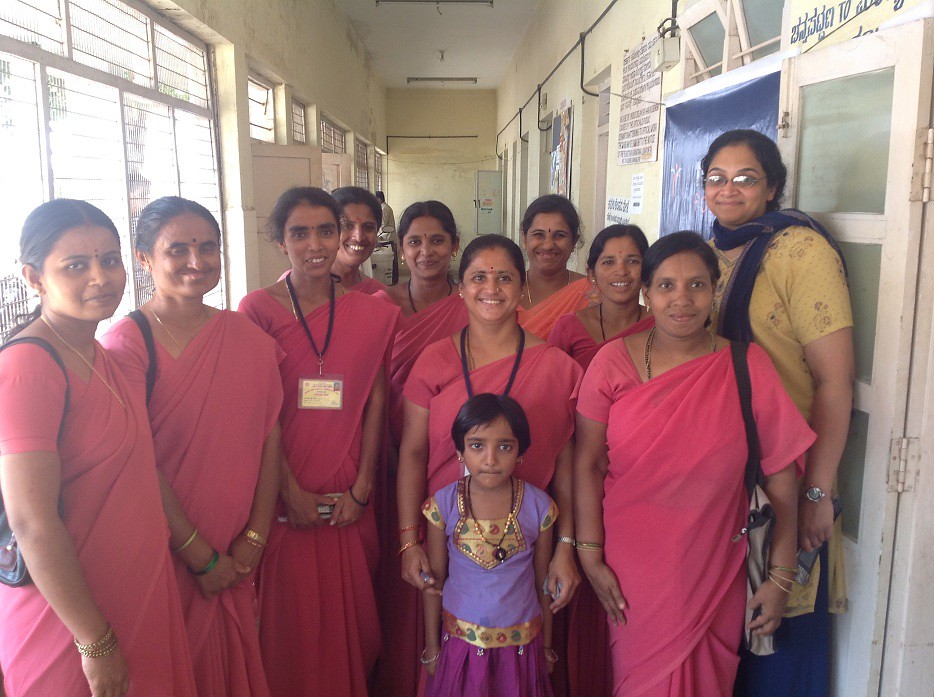Efforts to make people aware of their health is a big challenge as in remote areas, people often neglect their advice.
New Delhi: Hiramani, an Accredited Social Health Activist (ASHA), known as “Mitanin”, in Jagadalpur, Chhattisgarh, starts her day at 6 am. After finishing her regular household chores, she travels 5-6 km, sometimes, up to 10 km, every day, to resume her duties and services for other residents of Bastar, Chhattisgarh. Being a Master Trainer of Mitanin or ASHA workers, her duty is to train her juniors or new Mitanins while looking after the patients and submitting reports to the hospitals. Currently, her team has been surveying approximately three nearby villages to check the spread of malaria, but the efforts to make people aware of their health is a big challenge as in the remote areas people often neglect their advise.
“My team visits around 30-50 houses every day to check the spread of Malaria in the remote areas of Jagadalpur. I train other ASHA workers and ask them to get the daily reports and then we submit the reports to the local hospitals. We usually work more than 10 hours and travelling is a strenuous job,” Hiramani told The Sunday Guardian.
The same scenario exists in other parts of India too. According to the sources, there are more than 9 lakh ASHA workers in India. On Monday, the World Health Organization bestowed the Global Health Leaders’ Award on India’s millions of Accredited Social Health Activists (ASHA) for their work in connecting communities with health institutions during the pandemic. They were entrusted with raising awareness about Covid and safety standards, detecting and recording Covid positive cases, and conducting vaccination drives, sometimes, wearing no personal protective equipment. However, for many ASHA workers, this felicitation doesn’t bring bread and butter to their families.
Most of the ASHA workers in the national capital of India are still waiting to get paid for their work. The irregular payment of salaries has made their lives miserable. Most of the ASHA workers in Delhi have complained that despite working day and night, they are deprived of basic salaries and yearn to receive dignity in their professions. When The Sunday Guardian spoke to Shahid, an ASHA coordinator in Delhi, he said, “There is some validation work going on. We need to validate their bank documents on the portal so that they receive their salaries on time. Once the ASHA workers submit their bank documents, we will give them their salaries.”
Currently, the picture has not changed, several ASHA workers still continue to work without salaries. Similarly, another ASHA worker told this paper, “We frequently pay for travel expenditures from our own pockets. Ambulances don’t always arrive on time, and we have to pay the auto charges in which we carry the patients; in those cases, we don’t seek money from the families of the patients.”
While speaking to this correspondent, West Bengal ASHA secretary Ismat Ara Khatun put forth several demands such as recognition of ASHA workers as government health workers along with the incentive allowances to be paid at once instead of dividing it into eight parts. “Fixed allowance should be increased immediately; one task should not be forced right after another task without giving enough time and salaries. Also, if an ASHA worker cannot work due to severe illness, her fixed allowances should not be deducted,” Khatun told this paper while suggesting a few of her demands on behalf of the ASHA workers in Bengal.
“Sometimes, when we carry a patient to the hospital, the lower staff of the hospital ask us to wait. We have seen several patients groaning in pain, but receive no positive support from the hospital staff. There are times when after waiting for two to three hours, they get admitted,” an ASHA worker in Delhi, on the condition of anonymity, said.

